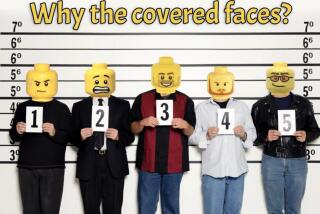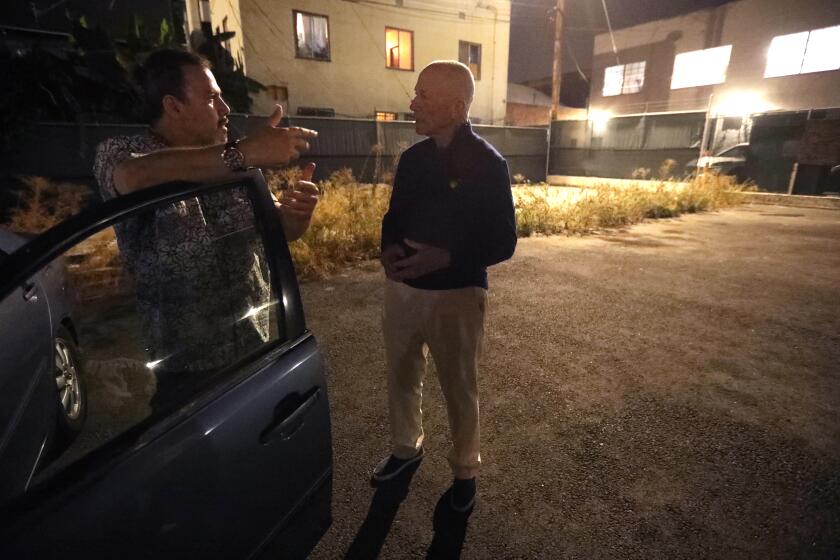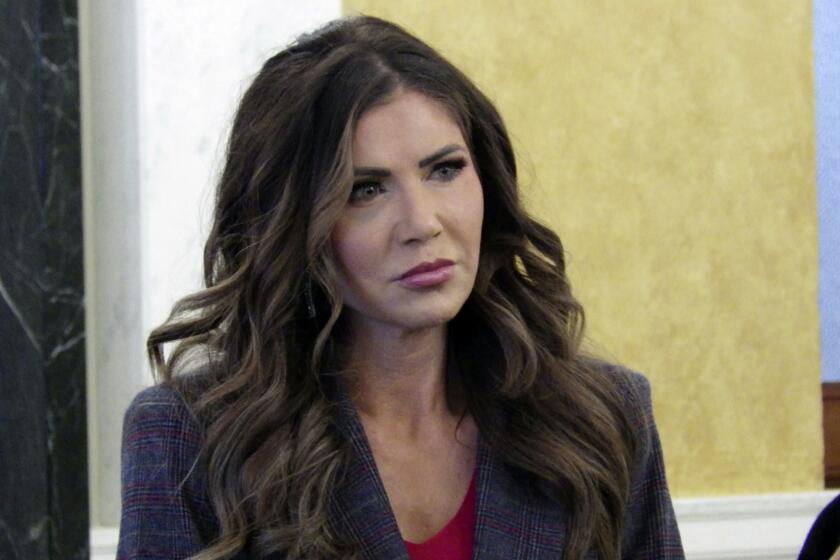Op-Ed: Drug enforcement gone wrong
Jesse Snodgrass had recently transferred to Chaparral High School in Temecula and was feeling out of place and alone in 2012 when a boy named Dan, another newcomer, befriended him. Jesse, a 17-year-old autistic student, wasn’t good at making friends and he was pleased by the overture. But there was something he didn’t know about Dan: He was an undercover narcotics officer attending class at Chaparral hoping to bust student drug dealers.
Dan quickly began exerting pressure on Jesse to sneak a pill from his parents’ medicine cabinet or buy him some marijuana. Jesse, whose demeanor and speech clearly signal his autism, was at first at a loss for how to meet his friend’s request. But he finally sought out a homeless man near a dispensary and traded a $20 bill Dan had given him for a plastic bag containing less than a gram of marijuana leaves. A few months after the two young men met, Jesse was arrested and found himself alone and bewildered in juvenile detention.
Jesse was lucky to have parents who stood by him and helped him navigate the court system. A judge has now purged his record of the drug charge, and an administrative law judge issued a scathing ruling that the school could not expel him, saying that the evidence was overwhelming that his disability had influenced his actions.
But we as a society still have some soul-searching to do. Should we really allow adults to dress up as kids, embed themselves in school classrooms and trick children into breaking the law?
The Riverside County Sheriff’s Department regularly targets high school students, sometimes, as in this case, inspiring crime where it otherwise would not have existed. In the last four years, the department has staged four undercover sting operations in which adult officers, masquerading as high school students, repeatedly pressured students to obtain illegal substances for them. Over the last four years, nearly 100 students, a number of whom were special-needs students, have been arrested.
It is unclear why the Riverside sheriff continues to use this ill-advised strategy, and why area school districts continue to allow it. Such stings have been abandoned by many law enforcement agencies and banned by school districts across the country. The Los Angeles Unified School District hasn’t allowed undercover stings in its schools since 2004, when it concluded that they had the potential to harm students but had not reduced the availability of drugs on campus. The National Assn. of School Safety and Law Enforcement Officials has concluded that undercover high school operations have a high potential for bad outcomes for kids without evidence of corresponding good results for communities.
Building on the efforts of Jesse’s family, the Drug Policy Alliance has been working to call attention to the problem in Riverside County through community education. We also recently sent a letter to the superintendents of 20 Riverside County school districts urging them not to allow undercover law enforcement operations on their campuses.
The letter noted that operations of this kind are not only ineffective in combating drug availability on campus, they also can inflict irreparable harm on young people struggling with the challenges of adolescence or special needs.
Children should receive honest drug education from their schools, not face deception and betrayal by people they think are their peers. Inevitably, as in the case of Jesse Snodgrass, high school drug stings will ensnare some students who would never have been involved in obtaining or selling drugs without being manipulated by undercover officers. Is pushing students into illicit activities really the best use of scant law enforcement resources?
Educators, parents, students and the community at large should call on law enforcement agencies to do real police work rather than targeting children in schools. Simply adding to arrest statistics, regardless of the consequences, does not protect schools or communities.
Theshia Naidoo is a senior staff attorney at the Drug Policy Alliance. Lynne Lyman is the California state director for the Drug Policy Alliance.
More to Read
A cure for the common opinion
Get thought-provoking perspectives with our weekly newsletter.
You may occasionally receive promotional content from the Los Angeles Times.






